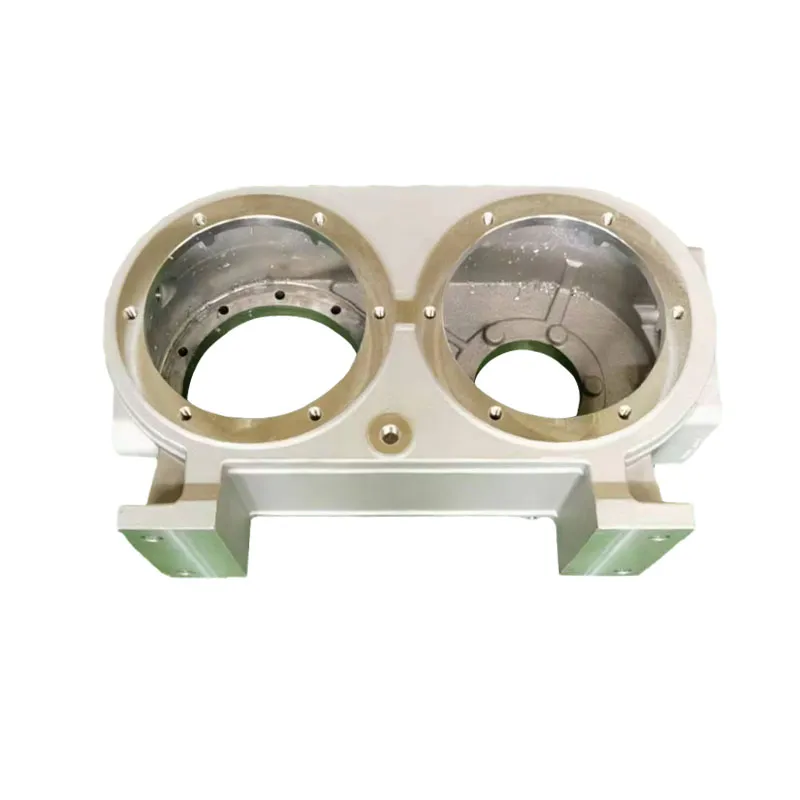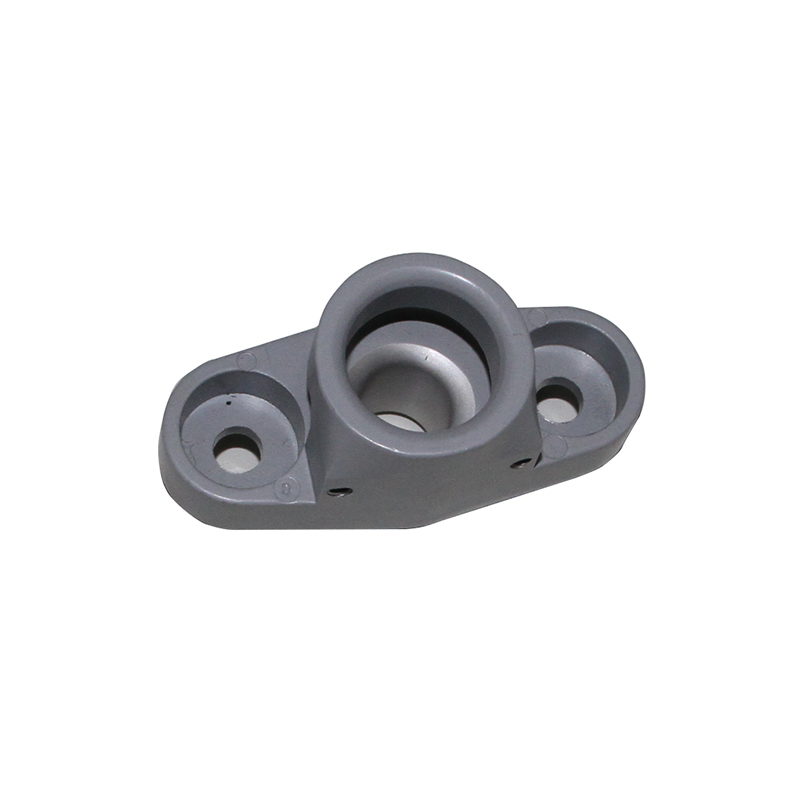Checking Out the Innovative Procedures Behind Modern Light Weight Aluminum Shop Operations
Modern light weight aluminum foundry operations are undergoing substantial improvement. Automation and AI are reshaping production techniques, boosting both efficiency and accuracy. The combination of 3D printing is streamlining mold and mildew production, while sustainability methods are becoming much more essential. Each of these developments plays an essential duty in redefining the industry. Nonetheless, the effects of these adjustments expand past mere production efficiency. What possibilities and difficulties exist ahead for aluminum shops in this developing landscape?
The Duty of Automation in Light Weight Aluminum Foundries
Additionally, automation adds to enhanced security requirements within the foundry atmosphere. By moving dangerous tasks to devices, human workers can concentrate on supervisory duties and quality control, minimizing the threat of accidents. In enhancement, data analytics originated from automated processes give important insights right into operational efficiency, leading to much better decision-making and continuous renovation. As the demand for light weight aluminum products grows, the fostering of automation technologies will likely broaden, further changing the landscape of light weight aluminum shop operations.
Innovations in Casting Technologies
Recent innovations in casting modern technologies are transforming light weight aluminum shop operations. Innovations such as 3D printing combination, advanced alloy solutions, and automated procedure optimization are boosting effectiveness and item high quality. These developments are essential in fulfilling the evolving demands of the market.
3D Printing Assimilation
Incorporating 3D printing modern technology right into aluminum factory operations has actually transformed standard spreading methods, enhancing both efficiency and precision. This innovative method allows for the rapid manufacturing of complex mold and mildews and cores, greatly reducing lead times and product waste. By using additive manufacturing, foundries can develop detailed geometries that were impossible or previously difficult to attain with conventional strategies. The flexibility of 3D printing likewise allows quick style modifications, cultivating a more nimble manufacturing process. Furthermore, this integration sustains making use of light-weight frameworks, which is significantly important in markets such as vehicle and aerospace. As light weight aluminum shops continue to adopt 3D printing, they place themselves at the forefront of technological improvement, driving improvements in item top quality and functional capabilities.
Advanced Alloy Formulations
The growth of sophisticated alloy formulations has considerably enhanced casting modern technologies in aluminum shop operations. These formulations integrate different aspects, such as silicon, copper, and magnesium, to enhance mechanical residential properties and thermal resistance. By customizing the structure of aluminum alloys, manufacturers can attain specific performance qualities that meet the needs of varied applications, from vehicle components to aerospace structures. Using advanced alloys likewise adds to reduced weight and enhanced toughness, which are important variables in modern design. Additionally, innovations in alloy growth make it possible for far better fluidness throughout casting, leading to boosted surface finishes and decreased defects. In general, progressed alloy formulations represent a substantial leap onward, placing aluminum shops to satisfy the evolving requirements of various sectors efficiently.
Automated Refine Optimization
Developments in casting technologies have actually led the way for automated process improvement in light weight aluminum shop procedures. By incorporating innovative software program and real-time information analytics, shops can now enhance production processes and boost quality control. Automated systems monitor variables such as stress, cooling, and temperature rates, permitting prompt changes that minimize issues and waste. In addition, artificial intelligence formulas evaluate historical efficiency data to anticipate excellent setups, thereby raising performance and decreasing cycle times. Robotics additionally play a substantial duty, managing repeated tasks that improve safety and accuracy. On the whole, these innovations not only drive operational performance but also enable shops to meet the expanding demand for top notch aluminum elements in various sectors.
Smart Production and Industry 4.0 Assimilation
The assimilation of Smart Production and Industry 4.0 within aluminum factories is transforming functional effectiveness. By leveraging IoT modern technologies, automation, and robotics, factories can optimize manufacturing procedures and reduce downtime. Furthermore, data analytics provides vital insights that boost decision-making and drive continuous enhancement.
IoT in Factory Procedures
As suppliers increasingly embrace the Net of Points (IoT), shop procedures are experiencing a transformative shift in the direction of smart manufacturing and Sector 4.0 combination. Aluminum Casting Company. IoT innovations allow real-time information collection and evaluation, boosting decision-making procedures and functional efficiency. Sensors and connected tools monitor equipment efficiency, material usage, and ecological problems, permitting for positive upkeep and resource optimization. This connection cultivates a much more nimble manufacturing atmosphere, where changes can be made swiftly in action to market demands. In addition, IoT promotes enhanced traceability and quality assurance, as information from the whole production cycle can be conveniently accessed and assessed. Overall, the assimilation of IoT in shop operations significantly enhances performance and drives advancement in aluminum production processes
Automation and Robotics Assimilation
Automation and robotics integration is transforming light weight aluminum shop procedures by enhancing effectiveness and accuracy. This transformative approach improves processes such as molding, pouring, and ending up, reducing human error and boosting outcome consistency. By employing sophisticated robot systems, shops can attain higher manufacturing rates while maintaining strict quality requirements. Automated systems likewise make it possible for real-time surveillance and flexible control, permitting swift modifications to manufacturing parameters. In enhancement, the combination of robotics lessens labor prices and reduces security dangers linked with manual handling of molten metal. As shops accept clever manufacturing concepts intrinsic in Industry 4.0, the harmony in between automation and robotics strengthens their affordable side, leading the way for lasting development and technology in the light weight aluminum spreading market.
Data Analytics for Efficiency
Taking advantage of information analytics significantly improves efficiency within aluminum foundry operations, straightening with clever production and Industry 4.0 principles. By leveraging real-time information collection and analysis, foundries can keep an eye on manufacturing procedures, anticipate equipment failures, and optimize source appropriation. This data-driven Aluminum Casting Company approach assists in informative decision-making, allowing supervisors to boost and identify bottlenecks workflow. Additionally, anticipating analytics equips foundries to prepare for market demands, consequently lowering waste and making certain prompt item shipment. Combination of information analytics with IoT gadgets improves operational presence, promoting a proactive maintenance society. Inevitably, carrying out these advanced analytical techniques not just boosts performance however likewise drives advancement, placing aluminum shops to meet the evolving demands of the market while maintaining one-upmanships in a quickly altering landscape.
Sustainable Practices in Light Weight Aluminum Spreading
While the aluminum casting industry has commonly faced ecological challenges, many factories are now adopting lasting practices to mitigate their impact (Precision aluminum casting). A substantial emphasis has actually been on recycling light weight aluminum scrap, which not just decreases waste but additionally saves power compared to key light weight aluminum production. Innovative melting innovations, such as induction heaters, improve energy efficiency and lower greenhouse gas discharges
Additionally, foundries are executing closed-loop water supply to lessen water consumption and decrease thermal pollution. The use of environmentally friendly binders in mold-making processes is gaining grip, additional lowering unsafe emissions.
Some centers are investing in eco-friendly energy sources to power operations, aligning with global sustainability objectives. By incorporating these methods, the light weight aluminum casting sector is evolving towards a more environmentally accountable future, showing that financial growth can coexist with eco-friendly stewardship - Aluminum Casting Company. These initiatives reflect a commitment to sustainability and the significance of ecological accountability in manufacturing
High Quality Control Innovations
As the light weight aluminum spreading industry advances in the direction of sustainability, the value of quality assurance technologies comes to be progressively apparent. Modern light weight aluminum foundries are taking on innovative modern technologies to boost their quality assurance procedures. Techniques such as real-time monitoring and data analytics permit producers to spot incongruities and problems early in the production cycle. Carrying out computerized inspection systems outfitted with machine learning algorithms guarantees that items satisfy rigid top quality criteria while decreasing human mistake.
Moreover, the assimilation of non-destructive testing techniques, such as ultrasonic and radiographic evaluations, gives much deeper understandings into the honesty of castings without damaging the product. These advancements not only improve product dependability but additionally lower waste, aligning with sustainability goals. On top of that, the adoption of standardized high quality structures helps enhance procedures across different factories, ensuring uniformity in result. Jointly, these improvements are reshaping quality assurance, fostering a culture of excellence within the light weight aluminum spreading sector.
Future Patterns in Aluminum Foundry Operations
What developments exist in advance for light weight aluminum shop operations? The future of light weight aluminum factories is positioned for makeover via innovations in automation, expert system, and lasting techniques. The combination of robotics and automated systems is anticipated to improve performance and accuracy in the casting processes, reducing human mistake and labor costs. Furthermore, AI-driven analytics will certainly allow real-time monitoring and predictive maintenance, maximizing operational performance and lessening downtime.
Sustainability continues to be a prime focus, with shops progressively taking on eco-friendly practices, such as utilizing recycled light weight aluminum and creating low-emission melting innovations. Developments in 3D printing are additionally expected to change mold-making, permitting for complicated geometries and minimized material waste. As the industry embraces digitalization, data-driven decision-making will come to be pivotal, allowing shops to react swiftly to market needs. Jointly, these patterns guarantee to redefine light weight aluminum factory procedures, making them more efficient, sustainable, and versatile to future obstacles.

Often Asked Inquiries
What Safety Procedures Are Carried Out in Light Weight Aluminum Factory Procedures?
Light weight aluminum factory operations carry out various safety and security procedures, including personal safety equipment, ventilation systems to take care of fumes, routine safety and security training, emergency situation response plans, and stringent surveillance of temperature level and tools to stop mishaps and assurance employee safety.
Just How Do Factories Handle Workforce Educating for New Technologies?

What Materials Are Commonly Reused in Light Weight Aluminum Foundries?
Aluminum factories typically reuse scrap aluminum, including post-consumer items like beverage containers, automotive components, and building products. This reusing process minimizes waste and conserves sources, adding to a more lasting aluminum production market.
Exactly How Does Light Weight Aluminum Casting Influence the Environment?
Aluminum casting impacts the atmosphere with energy-intensive processes, greenhouse gas exhausts, and potential regional air pollution. Advancements in reusing and sustainable practices can mitigate these results, promoting an extra eco-friendly strategy to light weight aluminum production.
What Are the Regular Lead Times for Light Weight Aluminum Casting Projects?
Common lead times for aluminum spreading jobs vary substantially, typically ranging from 2 to 6 weeks. Elements influencing these timelines consist of complexity, order dimension, and product accessibility, affecting general production schedules in foundry procedures.
Automation progressively plays an important role in aluminum shops, improving effectiveness and precision in the manufacturing process. Advancements in casting technologies have actually led the means for automatic procedure improvement in light weight aluminum foundry operations. Harnessing data analytics greatly boosts effectiveness within aluminum foundry operations, lining up with clever manufacturing and Industry 4.0 concepts. A significant emphasis has been on recycling aluminum scrap, which not only decreases waste yet additionally saves energy contrasted to main aluminum manufacturing. Light weight aluminum foundries frequently recycle scrap light weight aluminum, including post-consumer items like beverage containers, vehicle parts, and construction materials.